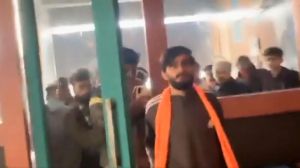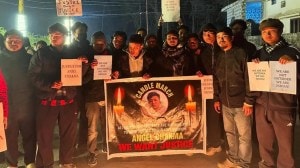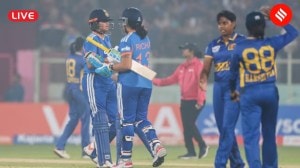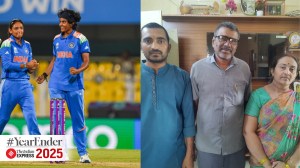After Rajiv, Before Modi
Some of the political commentary that the Gujarat election inspired has left me as worried about secularist amnesia as I am about Narendra M...

Some of the political commentary that the Gujarat election inspired has left me as worried about secularist amnesia as I am about Narendra Modi8217;s politics of hate. Let me say first, as I have said before in this column, that Modi8217;s attempt to get the Hindus of Gujarat to vote on his pogroms was in my view despicable.
Civilized societies are built on certain principles that are self evident, a priority, and not taking a vote on murder and rape has to be one of them. It should never be left to the people to decide if pogroms are a good idea and there is no question in mind that this is what Modi offered8212;scarcely veiled behind all that talk of pride and nationalism8212;as his main attraction in the recent campaign. In doing so he succeeded in building a wall of hatred between Hindus and Muslims that Gujarat will continue to pay a very heavy price for.
My problem is that I do not believe that his winning the election I write before the results are known will be the end of India, the end of history or as one commentator in this newspaper put it that his campaign has forever 8216;8216;changed the grammar and vocabulary of Indian politics8217;8217;. There has, ever since the Gujarat election was announced, been so much of this kind of comment in the newspapers and on television that I have found myself wondering if these commentators were comatose, unborn or in some other country in 1984.
Have they forgotten that within a day of Indira Gandhi8217;s assassination by her two Sikh bodyguards, every Sikh in India became a target? Have they forgotten the mobs that roamed the streets of Delhi with their cans of petrol and their burning rags? Have they forgotten that there was never a policeman in sight when Sikhs were burned alive in trucks and taxis and that the administration of India8217;s capital city collapsed so shamefully that dogs ate the dead in Delhi8217;s streets? The toll at the end of three days was more than 3,000 Sikhs dead not one Hindu in Delhi alone.
That the violence was carefully organized was clear because the mobs knew exactly which house, shop or factory belonged to a Sikh, knowledge that could only have come from voter lists or administrative records. If the mobs in Ahmedabad and Vadodara worked with similar foreknowledge it was because they had a model to work from.
And, if Modi then used hatred to consolidate the Hindu vote behind the Bharatiya Janata Party he also had a model to work from. Remember, please, that after the 1984 violence Rajiv Gandhi came to power with the largest majority in Indian parliamentary history mainly because he openly espoused the politics of hate. Not only did he justify the massacre of the Sikhs in a speech that was to become famous 8216;8216;When a big tree falls the earth shakes8217;8217; but his party ran a series of newspaper advertisements in which Sikhs were depicted as terrorists and enemies of India.
The trouble with using inter-communal hatred to win elections is that the price is always too heavy. So, largely as a result of what happened to Sikhs after Mrs Gandhi8217;s assassination, terrorism spread across the cities and states of Northern India and as young Sikh boys crossed the border into Pakistan to return trained for revenge. When they came back they killed major political leaders, planted bombs in crowded bazaars and attacked the authority of the state in whichever way they could.
In India because we have a strange disdain for history we forget easily so we have even forgotten that when the Babri Masjid was destroyed and violence spread across the country there were many who predicted then that it was the end of India. Hindus and Muslims would never live together in peace again, it was said, and we would have to reconcile ourselves to 8216;8216;fascism8217;8217; becoming part of our lives.
Well, the opposite happened, did it not? The nineties saw economic growth at a pace unknown before in India. Economic liberalization, however reluctantly it was introduced, brought new technology, modern ideas and modern systems of communication. One of the states that benefited most from all this was Gujarat and its real tragedy is that instead of continuing along the path of economic progress it has retreated into more primitive politics thanks to Modi.
What happened in Gujarat was terrible and Modi is a truly repellent creature to have in Indian public life but please let us not lose perspective and start believing that he is uniquely evil or that the violence we saw in Gujarat signals the end of India. It does not. But, the lesson we can learn from Gujarat is that primitive politics usually leads to unspeakable barbarism and in these days when the world has become such a small place governments that allow the mob to rule do more damage to the image of India than almost anyone else.
The other lesson, of course, is that if the Congress Party had not done it all before it could have fought Modi8217;s repugnant politics with aggressive secularism. It might have helped also if its campaign in Gujarat had not been led by a man who himself cut his political teeth in a pair of khaki knickers.
Write to tavleensinghexpressindia.com
- 01
- 02
- 03
- 04
- 05































